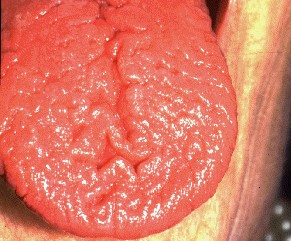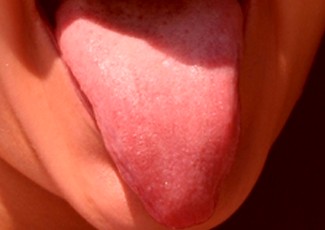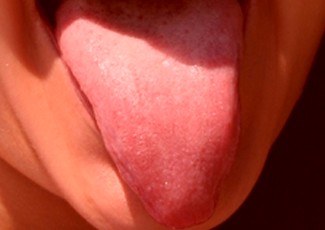Burning mouth syndrome is a condition that results in persistent burning pain in the mouth. This pain may affect the gums, tongue, roof of the mouth, lips, inside part of the cheeks and other parts of the oral cavity. The pain associated with burning mouth syndrome is generally widespread within the mouth, is severe and causes sensations akin to a seriously burnt mouth.
In most cases, the exact cause of burning mouth syndrome cannot be identified. This can often lead to delayed treatment or pose many difficulties to effective treatment. However, through consultations with a doctor can yield an effective resolution and alleviation from the symptoms of burning mouth syndrome.
Burning mouth syndrome is also referred to by a variety of different names such as stomatodynia, burning tongue syndrome, glossodynia, scalded mouth syndrome, and burning lips syndrome.
Symptoms of burning mouth syndrome
Some of the signs and symptoms of burning mouth syndrome are listed below:
- A fiery sensation that may be experienced on the lips, tongue, gums, throat, palate or the complete oral cavity
- Pain of the mouth that becomes worse with the progress of the day
- The tip of the tongue or the mouth may experience tingling sensations or numbness
- Excessive thirst
- The mouth may be increasing dry
- Absence of taste
- Increased soreness of the mouth
- Individuals affected by burning mouth syndrome may experience changes in taste such as being bitterer or being metallic in taste
The pattern of pain that individuals with burning mouth syndrome experience tends to vary greatly. The pain may start immediately after getting up from sleep and last for the entire day; or there may be some pain after getting up which progressive becomes worse as the day passes, or the pain may last for a few days and then stop for some days and then recur again.
Regardless of the pattern of pain in the mouth, individuals with burning mouth syndrome may experience the symptoms for many years. In a few cases, the signs may completely stop without any treatment or may occur with less frequency. Burning mouth syndrome generally does not result in any marked physical alterations of the mouth or the tongue.
Some of the complications that result from burning mouth syndrome are generally caused due to pain. They include the following:
- Sleeping problems
- Feeding or eating problems
- Depression
- Increased irritability
- Excessive anxiety
- Problems in maintaining relationships
- Diminished socialization
Causes of burning mouth syndrome
The cause of burning mouth syndrome can be categorized into the following two types:
- Primary burning mouth syndrome: When the causes of burning mouth syndrome are not known, then it is referred to as idiopathic or primary burning mouth syndrome. A few studies indicate that primary burning mouth syndrome is associated with anomalies of the sensory and taste nerves of the central or peripheral nervous system.
- Secondary burning mouth syndrome: When burning mouth syndrome is caused due to the presence of a pre-existing medical disorder, then it is known as secondary burning mouth syndrome. Some of the underlying problems that may be related to secondary burning mouth syndrome are as follows:
- A dry mouth which may caused due to intake of different medications or due to certain health conditions
- Various psychological aspects such as depression, increased anxiety or excessive worrying about one’s health
- Few oral disorders such as geographic tongue, oral lichen planus or infection of the mouth by yeast
- Nutritional deficits such as lack of zinc, iron, vitamin B-9, vitamin B-2, vitamin B-1, vitamin B-12 and vitamin B-6
- Damage of the nerves that regulate the tongue’s ability for pain and taste
- The use of dentures can result in stress of certain tissues and muscles present in the mouth resulting in mouth pain. The components of dentures can also result in increased irritation of the oral tissues
- Reactions or allergies to food flavorings, certain kinds of foods, food additives, dyes, fragrances and other materials
- A few medications, especially hypertension drugs known as angiotensin-converting enzyme inhibitors or ACE inhibitors
- Presence of gastro-esophageal reflux disease that may cause the reflux of stomach acids to travel to the oral cavity from the upper gastrointestinal region
- Excessive consumption of acidic drinks, increased use of mouthwashes and overbrushing the tongue may lead to increased irritation of the mouth, thereby facilitating the development of burning mouth syndrome
- Oral habits such as teeth grinding or tongue thrusting
- Hormonal imbalances such as those that accompany menopause
- Disorders or the endocrine system such as hypothyroidism and diabetes
Treatment of burning mouth syndrome
- Secondary burning mouth syndrome may be treated by overcoming the underlying condition causing the disorder.
- Primary burning mouth syndrome has no known cures. The treatment for primary burning mouth syndrome is aimed at alleviating the symptoms of the condition and to try various combinations of treatments to arrive at the best way to cure the condition. Some of the treatment methods include the following:
- Oral thrush medications
- Saliva replacement goods
- Some types of antidepressants
- Cognitive behavioral therapy
- The anticonvulsant drug, clonazepam
- B vitamins
Burning Tongue Syndrome Pictures


